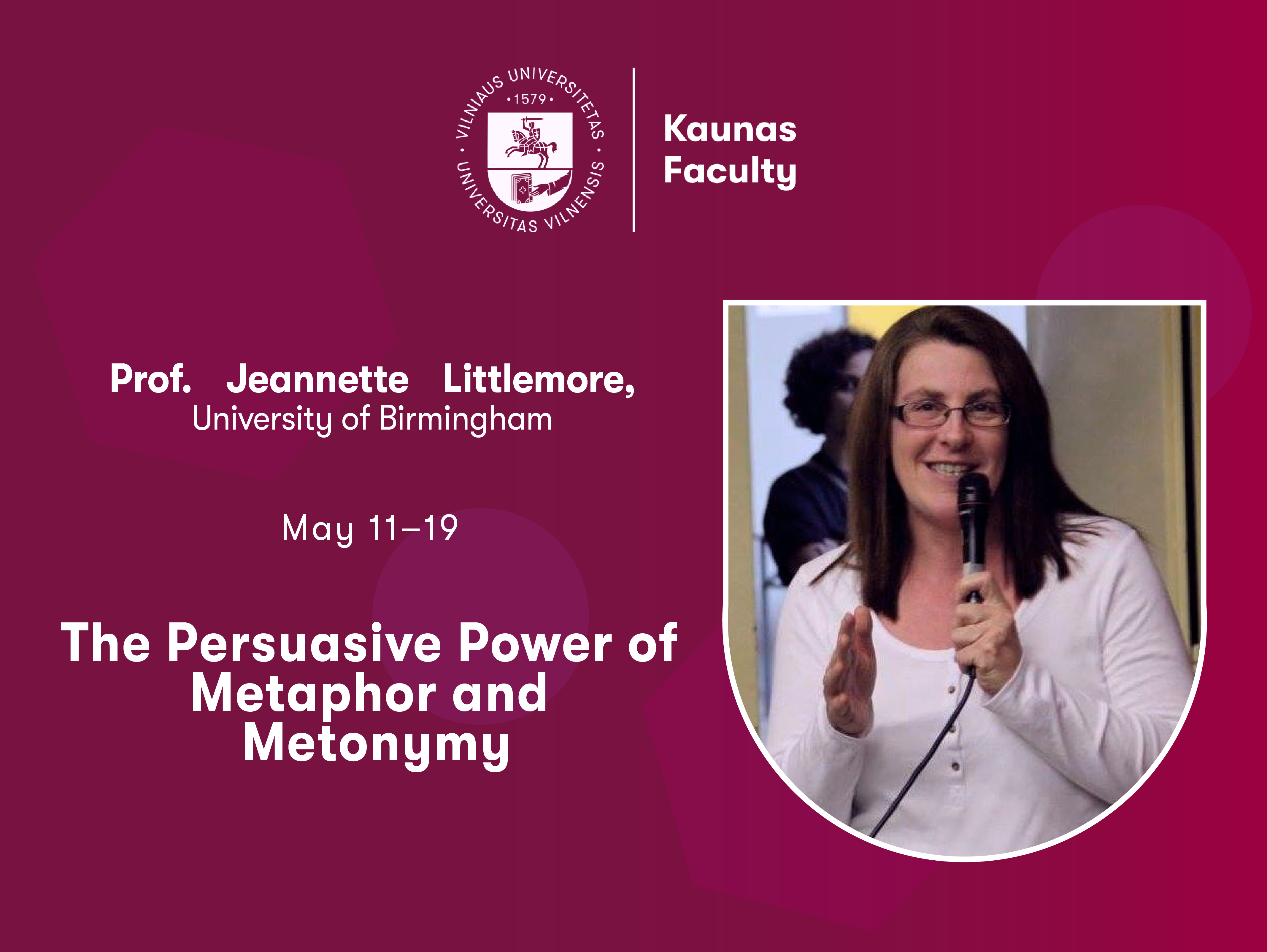 On 11-19 May, Jeannette Littlemore, Professor at the University of Birmingham, will be a guest lecturer at the VU Kaunas Faculty. The workshops will be held in English. For more information about the workshops, please click here.
On 11-19 May, Jeannette Littlemore, Professor at the University of Birmingham, will be a guest lecturer at the VU Kaunas Faculty. The workshops will be held in English. For more information about the workshops, please click here.On the creative use of metonymy
Workshop 3 (9.30-11.30 on Monday, 15th May) at Computer room No 13. Online link to join the seminar: https://bit.ly/3p7ZOE9
Metaphor and metonymy use in different discourse communities
Workshop 4 (9.30-11.30 on Tuesday, 16th May) at Computer room No 13. Online link to join the seminar: https://bit.ly/3HINL6S
Creative Uses of Metaphor and Metonymy in Advertising
Workshop 5 (9.30-11.30 on Wednesday, 17th May) at auditorium No 10. Online link to join the seminar: https://bit.ly/418BCPl
Children’s metaphorical responses to time, number and music
Workshop 6 (9.30-11.30 on Thursday, 18th May) at J. Jablonskis auditorium. Online link to join the seminar: https://bit.ly/44KNJ8r
Metaphor as a lens to examine intense, emotional experiences
Workshop 7 (9.30-11.30 on Friday, 19th May) at Computer room No 13. Online link to join the seminar: https://bit.ly/3NL7dU7
Variation in the Experience of Metaphor, including Metaphor use by non-typical populations